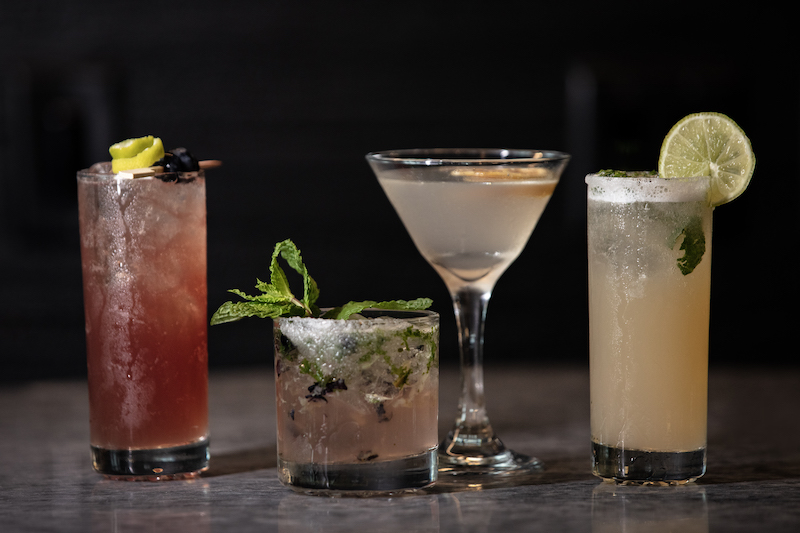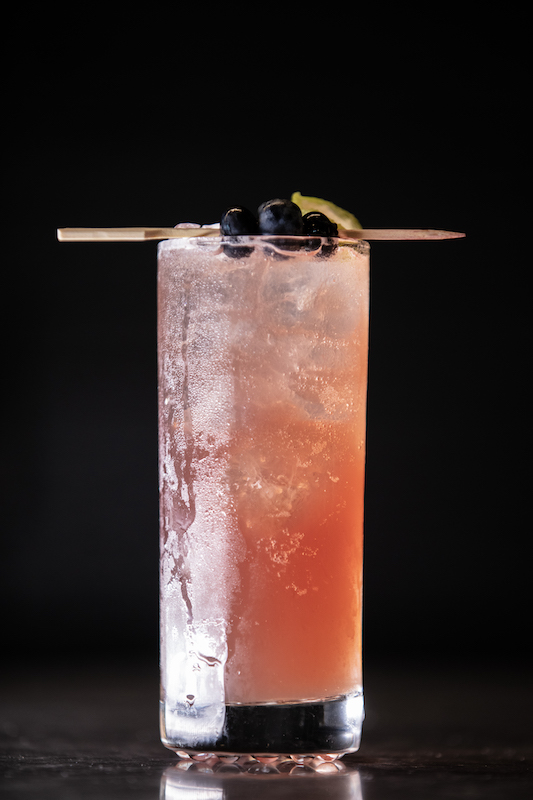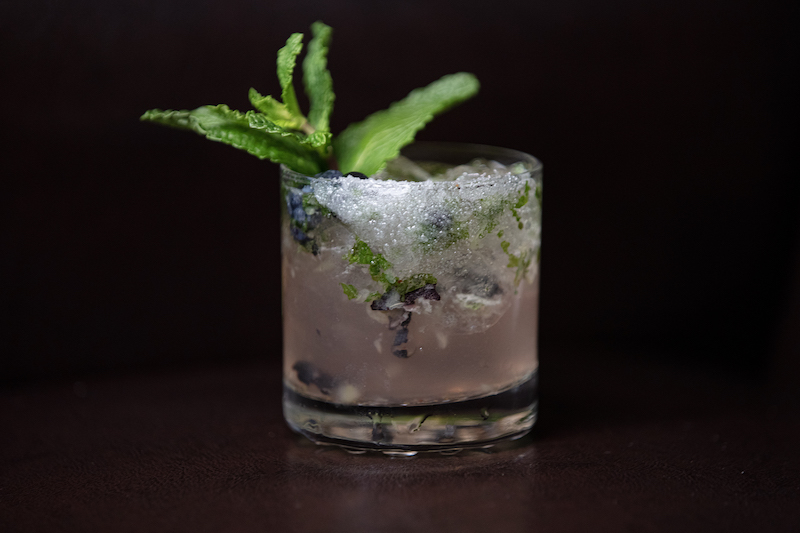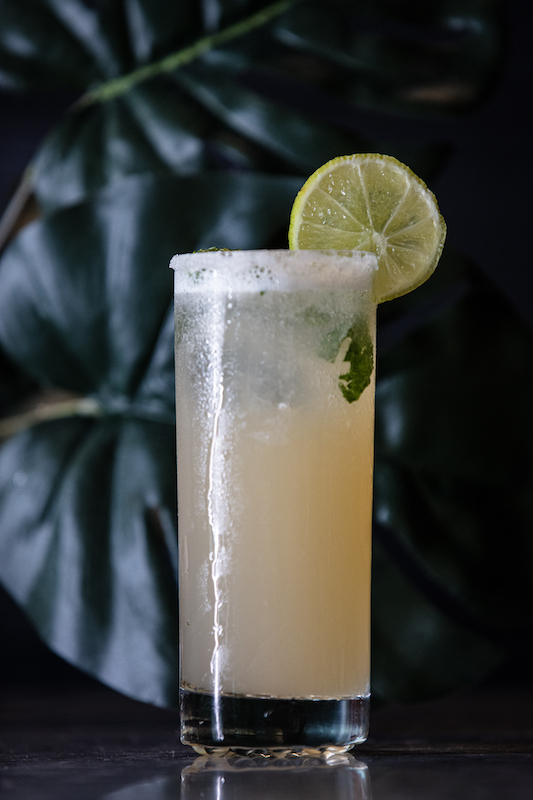
Party over?
Thanks to a little experiment I stumbled across three years ago via a Facebook group, I did not have to raise my hand this year. In January of 2020, after 18 years of wine drinking and just before the pandemic tore through our lives, I had not been feeling my best, so I decided to break up with alcohol—for five days. It wasn’t a New Year’s resolution, and I had never heard the term “Dry January.” It was simply a five-day commitment to give my body and mind a rest.
But five days turned into 31, which turned into 365, which turned into forever because I liked the way it felt to sleep soundly and wake up clear-headed and energized. I liked the way five pounds slipped off my body (and stayed off) without a shred of extra effort. I liked the way my eyes sparkled and my skin glowed and the way food tasted. I also reveled in the reduction of anxiety, the lifting of depression, extra time and money, and enhanced communications at home. I had no inkling that consuming a measly two glasses of wine every night had so much power over my sleep patterns, energy, appearance, mood, and relationships until I stopped doing it.
Today, people ask me if I ever have a drink. The answer is yes, occasionally. After a full year of complete abstinence, I can count on one hand the number of times I have had a cocktail since. Did I enjoy it? Yes and no. In fact, the few times I have had a drink, it was to experience a creative flavor profile, not out of habit or to drown my sorrows, soothe my nerves, entertain myself, or fit in socially. Drinking is now a “take it or leave it” thing, and I can say with all assurance that I am having more fun than I ever imagined when my mind was clouded by a steady infusion of alcohol. For me, the party is not over. Life is the party, and the celebration has just begun.

Blueberry Moon Shrub
Ingredients
2 oz. Amethyst
Blueberry Ginger
.50 oz. Lime Juice
.50 oz. Sweet’s Elderberry Shrub
Directions
Shake in ice, strain over fresh ice and top with ginger beer.
Join the crowd
Laying down the booze at the start of a new year is not a new idea, but the concept has been trending higher, partly due to a movement termed “Dry January.” The initiative, which kicked off in 2013 by the British charity Alcohol Change UK, aims to help adults improve their health and reset their relationship with drinking by challenging them to abstain from alcohol throughout the entire month of January.
In 2015, Alcohol Change UK partnered with Public Health England, and Dry January became all the rage. Now recognized worldwide, millions of people take part in the annual challenge, with one in five Americans reportedly participating last year.
Dry January is your invitation to join the crowd and sample sobriety without the overwhelming thought of giving up alcohol forever. Popular social media hashtags associated with the movement are #dryjanuary, #partysober, #drinkresponsibly, #sobernation, #nonalcoholic, #soberlifestyle, #sobertribe, #drinkwell, #hangoverfree, #alcoholfree, #alcoholfreelife, and #soberissexy.

Lavende et Myrtille
Ingredients
2 oz. Amethyst Blueberry Ginger Mint
Muddle blueberries (5) and a couple leaves of mint
.25 oz. blueberry simple syrup
.25 oz. lavender simple syrup
Directions
Shake and strain into a rocks glass with ice.
Garnish with a mint sprig and blueberry skewer.
The real challenge
While the trendy social challenge might be sufficient incentive to jump on the bandwagon, the real challenge is the private, inward soul search, which means asking yourself the tough questions: Can I go a month (or even a week) without any alcohol? If not, why not? What is driving my need for alcohol?
People participate in Dry January for different reasons, including to lose weight or re-examine their relationship with alcohol. Maybe you are simply ready to hit the pause button after a season of overindulgence. Perhaps your alcohol habit got out of hand during the Covid lockdown; maybe you have awakened with that headache one too many times recently, or you’ve been looking forward a little too much to your end-of-the-day cocktails. Whatever your reason for drinking or your motivation to step back, if your inner voice is asking for a break, it’s time to listen.

Oh Sweet Paloma
Ingredients
2 oz. Amethyst Lemon Cucumber Serrano
.50 oz. Lime Juice
Fresh Mint (a few leaves)
2 oz. Grapefruit Juice
Top with club soda Sugar rimmed Collins glass
Directions
Muddle mint in lime juice, then add Lemon Cucumber Serrano, grapefruit juice and shake. Pour over ice in a Collins glass and garnish with lime circle or wedge.
Between all and nothing
Still, the cold turkey approach isn’t for everyone. Much like a crash diet, strict deprivation has the potential to backfire. Nir Eyal, author of Indistractable and former Stanford University lecturer in behavioral design, said. “The problem is, if it’s about abstinence, and restriction, and sacrifice—like oh it’s gonna be so hard to ‘give up drinking,’ like I’m denying myself—you’re gonna bounce back like a rubber band.”
Besides, abstaining from alcohol for a month and then resuming your usual drinking habits isn’t going to do much for your long-term health nor erase the damage years of heavy drinking can do. You’ll reap the most benefits from Dry January if you approach it as an opportunity to evaluate the role alcohol plays in your life and possibly make a more lasting adjustment as opposed to using it as a license to drink as much as you want the rest of the year.
As an alternative to complete abstinence, Eyal recommends a more gradual approach to behavior change. That theory is reflected in the recent trend of “Dry-ish January,” in which people pledge to reduce their alcohol intake, not abstain.
The finish line
Regardless of your goal, whether to stop drinking or cut back, when you cross the finish line, before you pop a cork or pour a cocktail on February 1, take time to reflect on your Dry or Dry-ish January experience. Here are some questions you might ask yourself: Do I feel better? Healthier? More productive? Not as different as I thought I might? Have my sleep, mood, or exercise patterns changed? Have I saved money? Lost weight?
Maybe you’ve found that you’re more energized or less anxious with less or no alcohol. Or maybe you don’t feel much different, and you miss having a drink after work or a glass of wine with dinner. These are all valid takeaways to consider. Only you can decide what happens next and what feels right for you.
Could a month-long sobriety challenge be the kickstart you’re looking for in the new year or the catalyst for lasting change? You may find, like me, that taking a break from happy hour can transform all 24 hours of your day … and maybe even the rest of your life.
Tips for a Successful Dry January
If you are accustomed to drinking regularly, a month may seem like a long time to abstain or stick to your alcohol reduction plan. Here are five tips for staying on track:
- Find a substitute non-alcoholic drink. For social situations or when you crave a cocktail after a long day, reach for alcohol-free beverages like sparkling water, soda, or non-alcoholic versions of alcoholic drinks (see page ? for a few delicious “mocktail” recipes.) Non-alcoholic beer and wine are also options but be aware that some brands still contain up to 0.5% alcohol by volume. Read the label.
- Avoid temptation. Get the alcohol out of your house or, at the very least, out of sight. When you are invited to someone else’s home, bring your non-alcoholic drinks with you.
- Create a support group. Let friends and family know your intentions and encourage them to keep you accountable. Better yet, enlist someone to do the challenge with you or join a group online.
- Track your progress. Whether you use an old-fashioned calendar, a spreadsheet, or a modern app to mark your progress, self-monitoring and feedback can help. Partner up with your smart phone by downloading the free app, Try Dry®, the official app of Dry January. Other effective drinking reduction apps are Drink Control, Drinker’s Helper, Drink Coach, and Less.
- Don’t give up. If you slip up, don’t feel guilty. Just begin again the next day.
An Important Word of Caution
If you have been drinking heavily, you should consult your doctor before abruptly stopping. According to the U.S. National Library of Medicine, whenever you go cold turkey after drinking regularly, it’s possible to experience mild to moderate symptoms of alcohol withdrawal such as anxiety, irritability, nausea, fatigue, headache, and shakiness. And if you’re someone with a higher risk of seizures, please touch base with your doctor and be especially cautious.
People with a history of heavy drinking over a prolonged period may be at risk of a severe form of alcohol withdrawal—a potentially life-threatening process that can occur when an alcohol-dependent person suddenly stops drinking. Doctors can prescribe medications to address these symptoms and make the process safer and less distressing. If you have a severe alcohol use disorder (AUD), you should not quit alcohol without the help of a professional.
The National Institute on Alcohol Abuse and Alcoholism (NIAAA) defines heavy drinking as follows: for men, consuming more than four drinks on any day or more than fourteen drinks per week; for women, consuming more than three drinks on any day or more than seven drinks per week. Substance Abuse and Mental Health Services defines heavy alcohol use as binge drinking on five or more days in the past month.
If you are concerned about your alcohol use and would like to explore whether you might have AUD, please visit rethinkingdrinking.niaaa.nih.gov.


